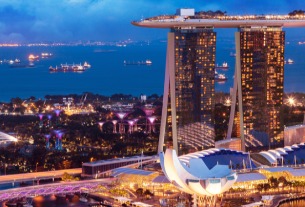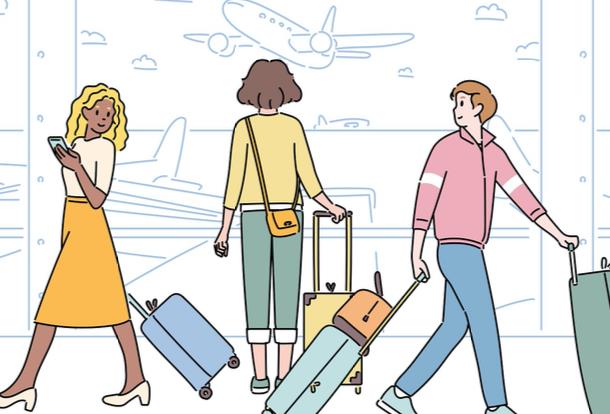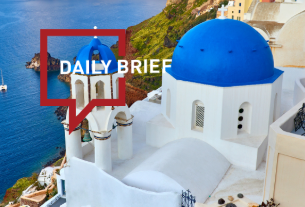REPORT FROM THE U.S.–Based on its observations of online shopping habits, Expedia is quietly developing a new strategy based on the time-honored dynamics of “push” rather than “pull” marketing. Hoteliers say they’re taking similar steps in the evolution of driving demand.
The use of push/pull strategies has existed among brick-and-mortar retailers for decades. In effect, “pull” means shoppers buy what they came to buy based simply on availability and price. A push strategy is more proactive and aggressive, and is aimed at motivating a purchase that otherwise might not happen.
In the Internet age, the classic example of push marketing is the way Amazon.com urges the purchase of a product based on what the customer has already purchased. Expedia is looking at ways to use the same selling strategy for travel.
For example, if a prospective customer pulls information about a trip to New York City but does not book, Expedia will perpetuate the shopping experience by sending updates about changes in airfares and hotel rates that are designed to motivate a booking.
“We’re entering a new era—the cross-device push era—where people are moving fluidly across desktop, phone, tablet—even wearables, like a watch—as they plan, book and then ultimately take their trip,” said Expedia VP of Global Product Arthur Chapin. “So, for now, push for us is really just about providing a meaningful way for customers to have quick access to the content they need across all their devices.”
Chapin said that means pushing out real-time data that informs customers every time something about their trip changes.
“For example, if we know you can check into your flight now, we can remind you,” he said. “If your gate changes, we’ll tell you where to go. When you land, we can help you find your luggage or even rate your flight.”
By offering such integrated, real-time connectivity, Expedia believes that in the future it can begin to influence buying behavior with a real push-marketing model that will create incremental new demand by motivating bookings that otherwise would not have happened.
That will be accomplished with tactics such as ongoing updates about airfares and hotel rates, or other information that could serve as an incentive to book.
For Expedia, the concept grew from the development of its Scratchpad tool, introduced in January, which stores search data across multiple devices and allows a shopper to go back and see the results of previous searches before finally deciding to book a trip. The average customer searches 48 times before booking a trip, Chapin said.
By knowing exactly what and when a prospective traveler searched for in the past, Expedia expects to be able to push out information that can help close the deal.
Hotelier reaction
Forward-thinking hoteliers are already pondering ways to take similar steps.
“Hard Rock is currently testing a couple of different push-marketing initiatives but not necessarily following the Expedia model,” said Claudia Infante, director of revenue and distribution strategy at Hard Rock International. “Our current model is an on-property program allowing us to generate brand awareness and try a push-marketing approach to generate ancillary revenues.”
So far, the reaction of hoteliers to what Expedia hopes to be able to do has been positive.
“Both pull and push marketing make sense in the hotel industry,” said Calvin Anderson, director of revenue management at the New York Hilton Midtown. “Push tactics have existed since the first newsie yelled 'Read all about it' on the street corners of New York City. What Expedia is doing is just a logical improvement of process. They're doing it by reaching out to the guest rather than merely fielding inquiries.”
Anderson believes the effort will create incremental new demand and revenue for the market as a whole, rather than just shifting volume around within a demand cap.
“I’m confident that a percentage of the business will be incremental because of my own travel tendencies, those being that I can be coerced into an impromptu trip if the price is right,” he said. “If Expedia knew what kind of trip I wanted to take and could bring it to my attention at the right price point, then it's bon voyage. As opposed to trying to attract the buyer that's ready to book, this creates a buyer, creates a transaction. And that's a good thing.”
Infante agreed Expedia's new tactics will create new demand. “But I think it will be for independent hotels that would otherwise not be found so easily,” she said.
Four- and 5-star properties are not as likely to see a bump in bookings, she said, “because these kinds of notifications are meant to generate last-minute sales or incite ancillary revenue streams. For budget or limited-service hotels, however, this initiative could represent a great opportunity to capture travelers that would otherwise pass them by.”
She cautioned, however, that if notifications are sent too often, they could annoy customers, who will turn them off.
“So (success) will be determined by whether Expedia can really deliver on a value-added strategy and better shopping experience,” she said.
Drew Salapka, VP of sales and revenue generation at Hotel Equities, which owns and/or manages 50 U.S. properties across a range of major brands, also expressed some skepticism.
“I think it is too early to tell (whether this makes sense for hotels),” he said. “The concept seems to make sense in that they want to drive demand into specific hotel markets. Now it will be interesting to see if they can do it.”
Anderson said he expects that if Expedia succeeds, other major online travel agencies will try to replicate its strategy and tactics.
“If they're going to survive,” he said, “they absolutely have to.”
Read original article




